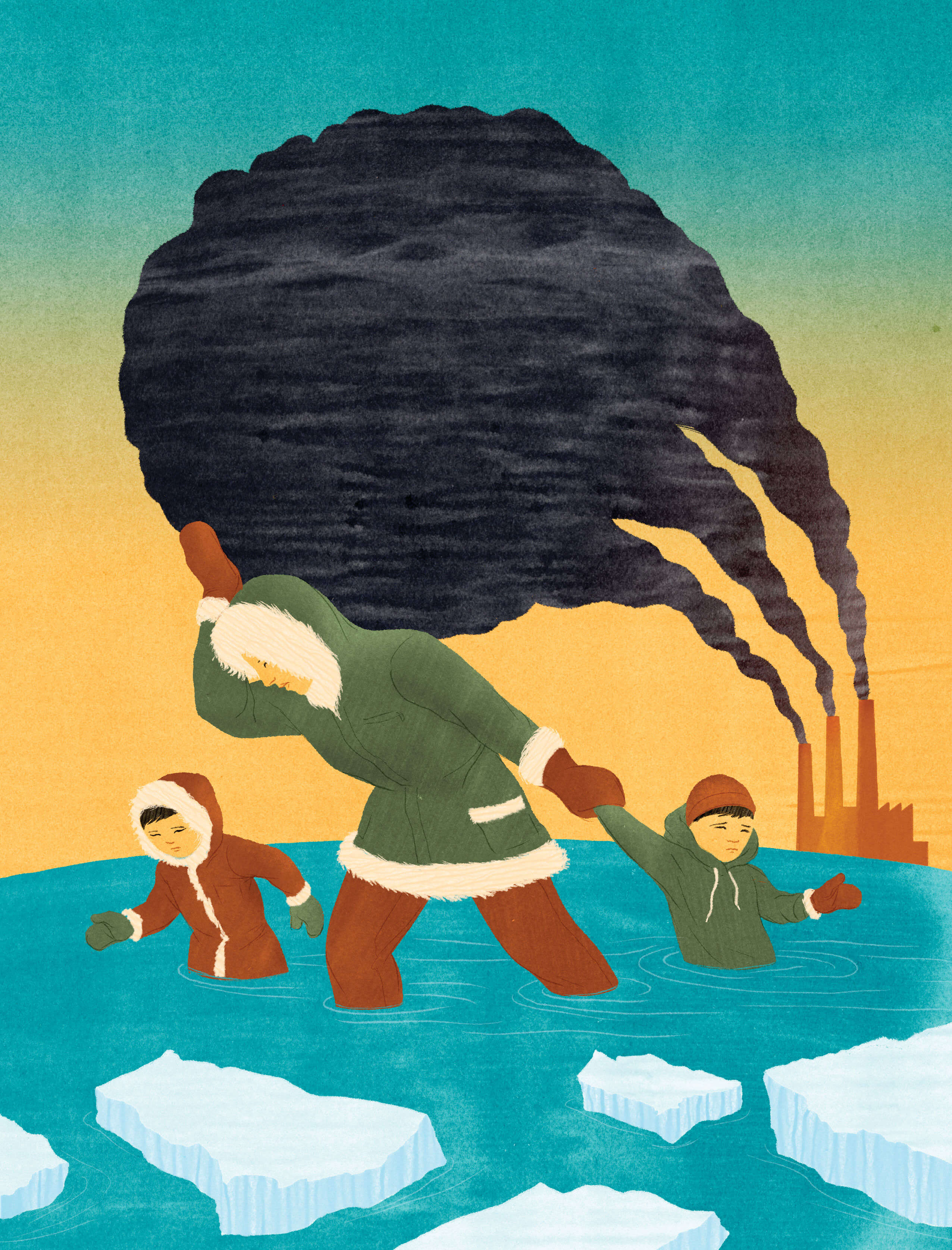
Law And World Order
A legal expert examines whether governments have a moral responsibility to address climate change.
Imagine this: After generations of your family living in one location, an environmental disruption linked to climate change forces you to leave. You are given little to no resources or money from the sale of your property, and you are forced to live in a new community or country, never to return to your homeland.
In essence, this is already happening to large populations of people around the world, says Randy Abate, J.D., a political science professor and the Rechnitz Family Endowed Chair in Marine and Environmental Law and Policy. While his new book, Climate Change and the Voiceless: Protecting Future Generations, Wildlife, and Natural Resources, explores how the law can be used to protect the world’s most vulnerable populations, Abate says another type of vulnerable group that needs protection includes what have come to be called climate refugees.
Typically, issues affecting refugees displaced by political or religious persecution have been regulated under human rights law, while issues related to climate change have been regulated under international environmental law. Yet while the issues facing climate refugees align more closely with human rights law, Abate says governments are regulating the problem from an international environmental law perspective.
Because there is no legal precedent for how to handle populations displaced by climate change, climate refugees across the globe are now stuck in a void between international environmental laws and international human rights laws, with both sides pointing to the other to take responsibility.
It’s happening right here in the U.S., says Abate, pointing to a lawsuit led by the indigenous Alaskan community of Kivalina against 24 of the largest fossil fuel companies in the world as a prime example. The 400 native Alaskans who have called the isolated village of Kivalina home for generations claimed that the global collective emissions created by those companies contributed to a significant portion of the sea level rise that is causing their community to vanish into the ocean. They argued that the fossil fuel companies should be responsible for paying the $400 million it would cost to relocate the community 10 miles inland.
“Ultimately, they lost this case in court, but it gives you a sense that there are no existing laws to protect them,” says Abate. “Even when creative efforts through the court systems are used to seek recovery, [the residents of] this native village in Alaska [are] still to this day on their own to figure out how they will move on when this strip of land goes underwater.”
The number of climate refugees is expected to grow in the coming decades: Some estimates put the number at 200 million by 2050. When you factor in climate change’s threat multiplier effect—that is, its ability to exacerbate existing threats in already unstable regions of the world (the Middle East, for example)—with the lack of a reliable go-to legal framework for dealing with climate refugees, a continued lack of action could soon cause “chaos” globally, Abate warns.
This inertia by world leaders is already drawing the ire of vulnerable nations and populations around the world. Enele Sopoaga, the former prime minister of the South Pacific Island nation of Tuvalu, famously said climate change is a “slow and insidious form of terrorism against us.”
“Those who are vulnerable in the South Pacific, watching what they call home … about to go under water in a period of decades, believe [that] developed countries have a moral, political, and legal responsibility to regulate climate change, to buy them more time in the South Pacific, to stay where they are and not be robbed of their culture—they see that failure to act as a form of terrorism,” says Abate.
Abate says a necessary shift is beginning to occur: Cases are being brought to the courts on the basis of morality.
One such example is Juliana v. United States, a pending case in federal court in which 21 teenagers from across the U.S. are suing the federal government for the “right to a stable climate.” Because teenagers, children, and the unborn cannot vote, the plaintiffs argue there is a moral imperative for the government to regulate climate change in order to protect them.
Similar to the argument used in the Supreme Court decision on same-sex marriage, the plaintiffs are not seeking an amendment to the constitution, but rather that the Due Process Clause recognize the right to a stable environment, so that vulnerable populations can enjoy the other rights included in the constitution.
“There is clearly nothing in our constitution about same-sex marriage, but the argument is that marriage is so fundamental to the enjoyment of so many other constitutionally protected rights, it is the foundation from which we as citizens live our lives,” says Abate. “Essentially the same argument is being made with climate in that a right to a stable climate is so fundamental … that it has to be something that our Due Process Clause recognizes. What’s the point to having the right to free speech and freedom of religion if we’re all dead because of an unstable climate?”
Next, read Part IV of this series: Practical Implications.